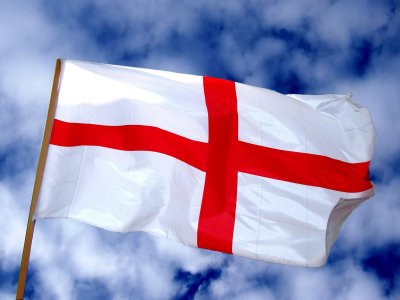
ON BEING ENGLISH
Address to Rochester Diocesan Synod, March 2022
Elizabeth has been queen for a staggering seventy years. She is the only monarch most of us have any experience of and there is much to be grateful for in the service she has shown throughout. The special joy has been having a queen who trusts so openly in Christ; who never fails to reference her faith every Christmas; who said via Edward at the opening of General Synod in November 2021 that of the tasks facing the Church, and I quote:
One stands out supreme: ‘to bring the people of this country to the knowledge and love of God’
Some may not have thought of it this way before, but hers is a fine example of everyday faith, finding ways to express the love of God in word and conduct in the course of your daily work.
The other thing some may not have thought of is that future generations will refer to us as the Elizabethans. I wonder how we will be interpreted? I am sure we each have ideas about that, but we are very close to source and it is possible new perspectives will prevail. Among other issues, one thing is apparent. The United Kingdom as a political construct is at its most brittle in our lifetime and in the reign of the Queen.
After the Scottish vote against independence in 2014, the now First Minister of Scotland said there would be no further request for a referendum unless something materially changed. The case is now being made that Brexit meets that criterion. And it’s not just Scotland, but the existential questions facing Northern Ireland for the same reason.
I don’t want to wade into these issues standing here. But I will say this. According to Census data, I am in a minority of people in England who think of themselves as British before they think of themselves as English (except, of course, when it comes to the Six Nations, as this afternoon will reveal). Englishness does not play well in Scotland anymore and I am sad about that and for the carelessness in how English people like me can often talk about England when we actually mean Britain.
My point is this. It is possible we may see the breakup of the United Kingdom in our lifetime, meaning Englishness will become important as a social and political identity in a way we have not known before. If so, what kind of Englishness would we want? What are the qualities, the values and the institutions that would describe, if not define us?
Our diffidence in debating this so far has tended to play into the hands of the thuggish far right. We are seeing how toxic nationalism plays out at its malevolent worst in eastern Europe, where in recent years the Russian President made a subtle linguistic pivot in talking about ethnic Russians where previously the language had been more inclusive. If, in our settled democracy, you feel excluded by my talk of Englishness, then it may show how exclusive rather than inclusive has been our understanding of England.
Philip Collins (that’s the journalist not the drummer) wrote in his book Start Again: how we can fix our broken politics, that he believes the Church of England, as one of the few truly English institutions, still has a role in shaping a renewed English identity.
Not half we don’t.
And it starts by making disciples for Christ; people who come to the knowledge and love of God, as the Queen said.
When historians look back on the Elizabethans, they may identify ours as the first generation to become truly obsessed with measuring things. Gathering data helps us to sift evidence and make sense of our world. But it can also obscure what we most need to know. We have become preoccupied with numbers attending church, which can be measured, and yet we miss signs of the coming kingdom because they can’t be as easily. The parables, the origin stories of our faith, show us this.
And the trail of crumbs in Jesus’ parables leads us to an unexpected destination: the upper room. The Church was founded by a community entirely, single-mindedly, devoted to prayer. We can talk about how best to reach people with the Gospel; we can dream up new ways of being Church; we can empower people to live out their faith but, to paraphrase St Paul, without prayer they are nothing worth.
Everyone assents to the importance of prayer, but at times we come perilously close to lip service. Ours is a highly individualised culture and our prayers are too often mapped on to this. We become preoccupied with our own lives and with the welfare of those we really care about and remainder the work of the wider kingdom of God. I feel this pull, especially when I do not wait properly on the Lord, and you may recognise this too.
And there is a noisy neighbour in every place now, who interrupts our train of thought, our channel of intercession. The world now creates as much information every ten minutes as the first ten thousand generations of humans combined. No wonder we are frequently bewildered, distracted, aimless. These information flows are largely unregulated in our lives and designed to draw our attention away from what is in front of us. I have no way of measuring what this is doing to our prayer lives, but I have an uneasy feeling about it.
Later on we will look at the possibilities surrounding the adoption of a total return policy. Behind the words and the figures lies the question of how we balance the opportunities in front of us today with the needs of the Church tomorrow, and whether those opportunities can meet some of those needs before they even arise. I think they can. But I also think they won’t if we do not find some renewal in shared intercession: the sustained, intentional bothering of a God who wants us to bother him:
Unless the Lord builds the house, those who build it labour in vain.
Our prayers can be too like a misspelt, predictive text dashed off while we walk down the street, rather than a letter written in longhand to the one we love. When we wait for God, the kingdom draws near; when the kingdom comes close, the Church grows. But it starts by hanging in there in prayer. This is our front line, where we step into a gap others do not. Acting as forward spotters for the kingdom of God.
We are shortly going to hear from some of our young people and those who support them spiritually. When these young people reach the average age of people here, the world will have altered hugely. What do we want to bequeath to them, to the Church in 2050? You may be familiar with the internet meme OK Boomer. It’s used by some in Generation Z to mock the attitudes of the post-war baby boomers who explain the world to younger people and resist any sense that it needs to change. Our first duty today is to listen, and allow them to describe what it means to be young and Christian in 2022. And not just here, in this short slot, but more and more regularly, until it becomes second nature to take advice from young people. In doing this, I think we will find some of the clues God is wanting us to pick up.
In times of disturbance, like ours, anxiety generates nostalgia because we can control the past with our memories, bestowing on it a glow it did not necessarily have. And this imagined past is then used to judge the present unfairly. We are all prone to nostalgia, and when we submit to it, we tend to divide between nostalgic pessimists and nostalgic optimists. Nostalgic pessimists really do think the past is better than the present and that any kind of change will probably only be for the worse. The vestiges of the past are then fiercely fought over in the present. Nostalgic optimists also look fondly on the past, but believe we can reclaim what was good about it and renew it today. A few admit to being part of the first cohort. Many people have sympathy with the second cohort.
As followers of Christ, we should instead show faithful hope. The past has shaped us, but we cannot meet with God in the past. It’s like when you read a scripture and it jolts you like an electric shock with its power. We are left with a palpable sense that God has walked into the room, sat down next to us with a highlighter pen and marked the passage specially for us. Then when we return to the passage in the future, it no longer has the same effect. That’s because God wants us to move on, to speak to us in other words.
When God moves in power, he does a new thing. We cannot stay where we were. We may wish things could look like they did in the past, but when the renewal of the Holy Spirit comes, they do not. But to those who feel a bit edgy about this, remember that towards the end of Revelation, God does not say: behold, I make all new things. He says: behold, I make all things new. It is this world that will be recreated.
We need – I need – a deeper focus in intercessory prayer. This is where it starts, and where it ends. The prayer is that our Church, our country will be filled with a greater knowledge of the glory of God than at any point before. Why would we aim for anything less? Like the beauty of a full moon lit up by the rays of the sun, when God shines again on England, it would light up what it means to be English and bring out the colour and the personality that make us who we are, but more importantly who he wants us to be in, and for, a world that has begun to darken.
POPULAR ARTICLES

God In The Cow Shed
2020 has been dominated by the C word. Not that C word. I mean conspiracy theory involve space. Some people believe the

Viral With The Holy Spirit
Since the tech revolution, insurgent new start-ups have enjoyed using the word ‘disruption’

Long Lost family
Some types of storytelling mess with your brain. Intentionally. Like one of those novels where you assume

Valuing Age
Lots of work is being done round unconscious bias in society, especially around gender and ethnicity

